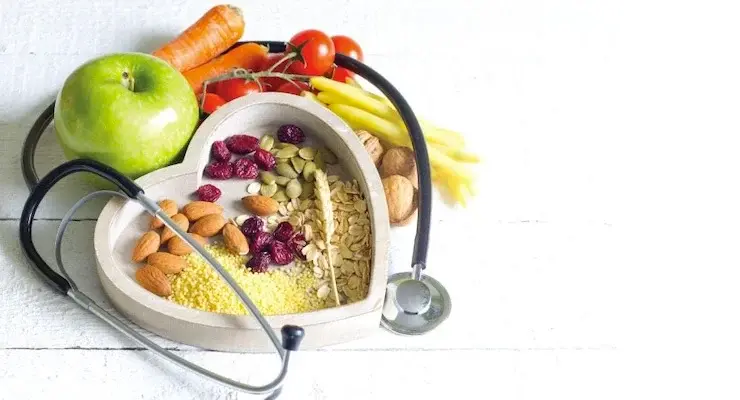Today's globalized, competitive and technified world leads us to be efficient in our daily tasks. Thus, circumstances such as a final exam at school or college, a work report to the board of directors of the company or economic pressures can undermine, little by little, our peace of mind and health.
The sensations of worry, anguish and anxiety are known as stress. The possible positive response to their appearance depends, to a great extent, on an adequate nutritional state.
The relationship between stress and nutrition is basically due to the fact that both factors interfere with neuroendocrine functions, energy metabolism and the function of the immune system.
Stress provokes three different reactions in our body. The first reaction to a stressful stimulus is the "ALARM" stage where the worry and anguish we feel generates the release of hormones such as adrenaline, which stimulates metabolic changes. These changes in metabolism lead to alterations in nutrient levels, for example; the body's protein reserve decreases, blood sugar increases, sodium is retained and the level of calcium and magnesium decreases, among others.
These nutritional ups and downs are reflected in symptoms such as: increased blood pressure, tachycardia, shortness of breath, dizziness, headaches, colitis, gastritis, stomach pain, diarrhea and hyperglycemia. The latter can lead to weight gain and thus affect health.
The second stage as a response to a stressful situation is called RESISTANCE PHASE, where our body tries to normalize the levels of nutrients, using substances from the diet, at this point, the B vitamins, especially Riboflavin contributes to the body to resist, for a longer time, the stress.
If the food we eat is inadequate and does not meet the daily nutritional requirements, the body will use the reserves of these until "exhausted". The problem with frequent situations that induce anxiety and stress is that the RESISTANCE PHASE can occur, already in chronic form and this, together with an inadequate diet, will produce DEPLETION, the third reaction to stress; where the nutrients are not supplied by the diet or body reserves and this is when the immune system becomes depressed, as well as our mood and we can be susceptible to various diseases.
One of the strategies to combat the consequences of stress in our lives is through proper nutrition. The "anti-stress" diet is not very different from the one we can follow to fight against other health problems. However, there are certain foods that, due to their nutritional composition, contribute to strengthen the immune system and to calm us down. Appropriate foods are whole-grain products, water, aromatic herbal teas, grains, fruits, vegetables, animal foods, but in small portions, defatted and prepared in a healthy way. This type of diet should also be reduced in coffee, tea, salt, fats, condiments and artificial sauces. It is advisable to avoid processed foods and sugars; because certain additives such as preservatives, colorings and artificial flavorings contribute to the alteration of the nervous and digestive system, and aggravate the physical symptoms of daily emotions.
An example of a menu for a stressful day could be the following:
BREAKFAST
- Vitamin juice (a mixture of orange, carrot, cucumber and celery juices).
- 2 slices of whole wheat bread with low-fat white cheese.
- 1 fruit
SNACK FRUIT or low-fat yogurt
LUNCH
- Brown rice with vegetables
- Lentils
- Grilled fish fillet
- Green salad
- Fresh fruit with little sugar.
SNACK
- Mint tea with chamomile with little sugar
- 1 package of soda crackers
DINNER
- Vegetable soups or cream soups
- Pita or whole wheat bread
- Fruit
- Night Linden tea, or infusion of lettuce leaves or ½ glass of warm skim milk.
Finally, remember to chew your food well, drink pure water, preferably between meals and try not to skip meals.
Good luck in your fight against stress... And as for the diet plan, it should be designed by a professional who assesses, monitors and controls the psychological, nutritional, occupational, social, economic and health aspects. In addition to weight, height and age, the physiological state of the person, the degree of physical activity and food preferences and tastes are analyzed.
Nutrition Specialist




